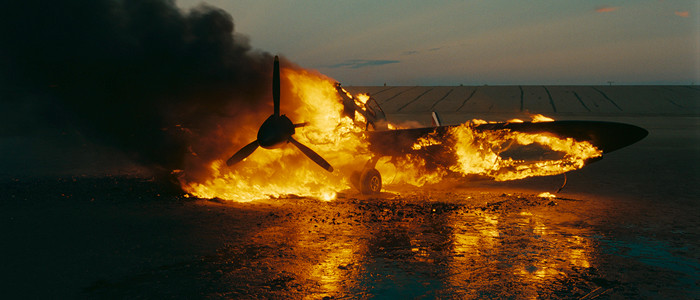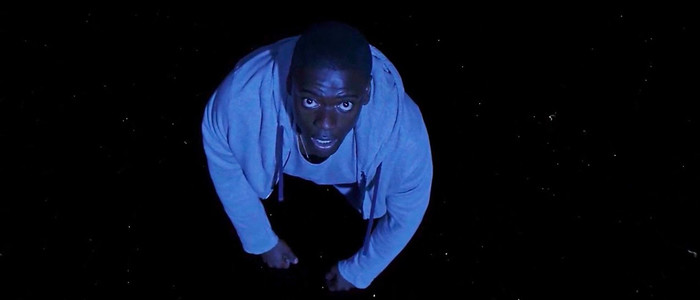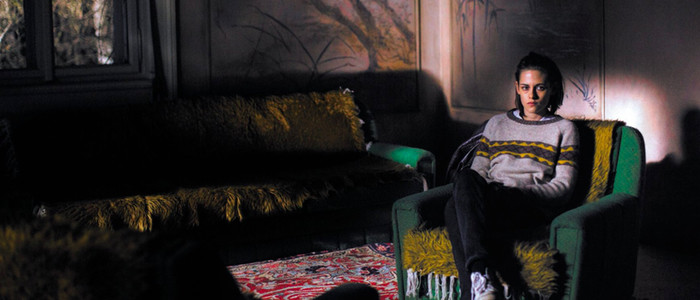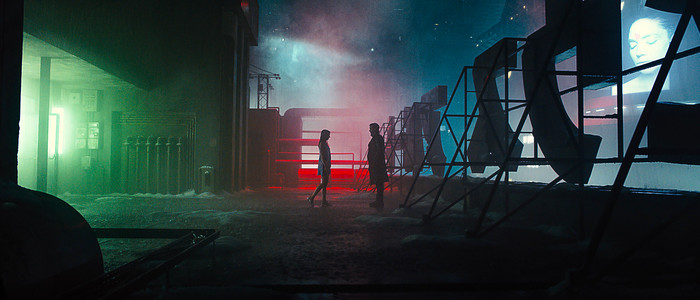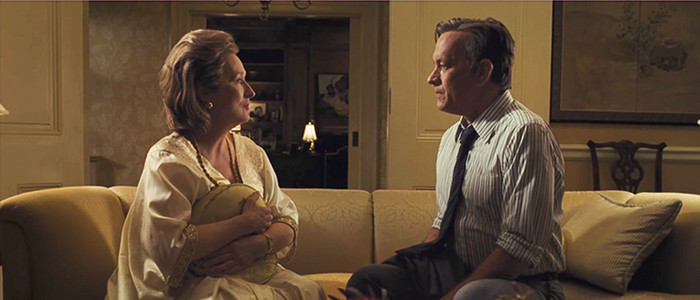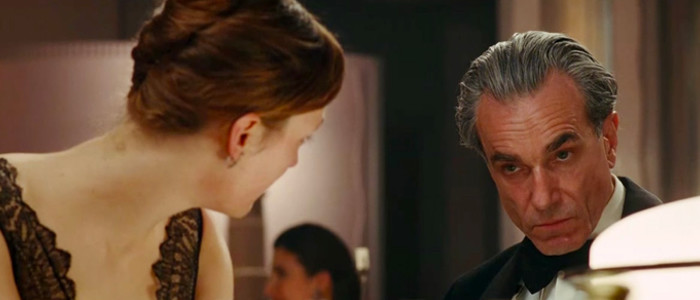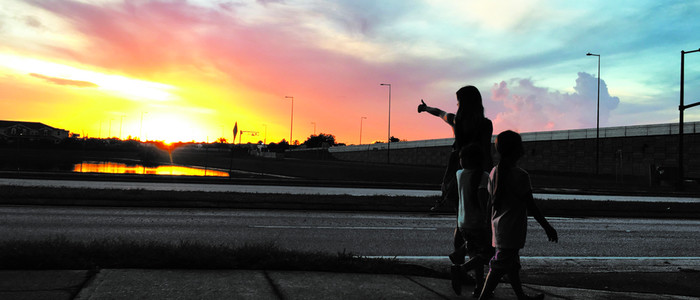Chris Evangelista's Top 10 Movies Of 2017
Rejoice: 2017 is dead. It's time to think about the future! But first, let's take a trip to the past and revisit the 10 Best Films of 2017, according to me, Chris Evangelista.
A wealth of fantastic films populated the cinematic landscape of 2017, and some of the movies that made this particular top 10 will almost certainly find a place in my all-time-greatest-film list in years to come. When I compile a list like this, I'm primarily focusing on one thing: which films of the year actually made me feel something? Which films made a difference to me, personally? Which films stood head and shoulders above the rest? As is always the case with lists like this, I feel I must remind the reader that these are my own personal choices. If you disagree with what I picked here, that's fine – but please don't jump down to the comments and tell me I'm crazy for ignoring a certain film. If a film isn't on this list, it simply is not in my top 10. That's how simple this is!
That said, here are some films that didn't end up in my top 10 that still deserve attention: The Disaster Artist, Mudbound, It, The Lost City of Z, Star Wars: The Last Jedi, Professor Marston and the Wonder Women, Wonder Woman, Logan, Most Beautiful Island, Kedi, and of course, A Cure For Wellness. And now without further adieu, here are my 10 Best Films of 2017.
10. Dunkirk
Christopher Nolan's Dunkirk is a war movie where battle isn't nearly as important as survival. With this film, Nolan pulls out all the stops, putting every trick in his director's bag to work to craft the ticking-clock movie to end all ticking-clock movies. Nolan sets up three distinct locations – land, sea, air – and proceeds to deftly combine them together into a tense, cohesive, and ultimately emotional journey. Most of all, though, Dunkirk is a showcase for Nolan's skills behind the camera; an excuse for the filmmaker to create big spectacle on the largest canvas imaginable, while never straying into mindless blockbuster territory. While enough can't be said about Nolan's work here, a bulk of Dunkirk's success resides with two other people: editor Lee Smith, who subtly ties three seemingly unrelated narratives into one concise piece, and composer Hans Zimmer, who conjures up a droning, dread-inducing, pulse-pounding score that never relents, driving Dunkirk forward to the very last frame.
9. Get Out
How refreshing it is to watch a horror movie with something on its mind. More often than not, horror is a genre that buckles under the pressure of trends – a glimpse at the scary movie output of the last decade is riddled with by-the-numbers creepshows that are solely committed to loud, inconsequential jump-scares rather than thoughtful explorations of fear. It seems only appropriate that the filmmaker to give the horror movies a much-needed shot in the arm is someone who wasn't primarily associated with the horror genre. Jordan Peele's Get Out is a twisted, funny, scary, socio-political commentary that continually surprises from scene to scene. Peele's film is tackling issues of racism, but Get Out goes beneath a surface reading of a racist society, and presents a portrait of an America that loves to rationalize its hateful behavior. When Bradley Whitford's malevolent brain surgeon tells Daniel Kaluuya, "I would've voted for Obama a third time if I could," there's no indication that Whitford's character is actually lying, or buttering Kaluuya up. He probably very much means what he's saying here, but that doesn't change the fact that he ultimately wants to Kaluuya's character's blackness for his own nefarious purposes. Get Out once again proves that best horror films are the ones that are interested in revealing that the real world is much scarier than supernatural boogeymen going bump in the night.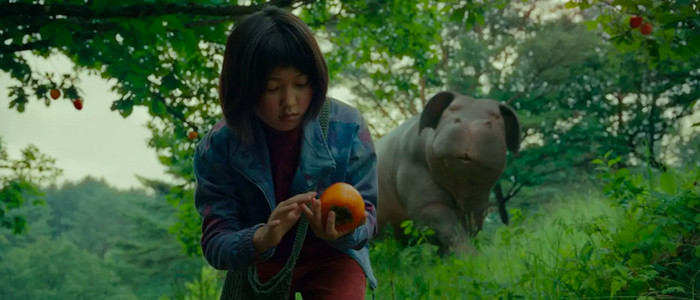
8. Okja
Sometimes, a movie is powerful enough to change you. Case in point: before I saw Bong Joon-ho's Okja, I had only casually entertained the idea of becoming a vegetarian. After watching the film, I was officially done with meat, for good. I'm not bringing this up to guilt proud carnivores, but to simply state that when a film has the power to hit me so completely on an emotional level as this film did, there's something special going on. Okja is an hilarious, wild, weird, ultimately heart-breaking portrait of friendship and so much more. South Korean pre-teen Mija (An Seo Hyun) cares for her big, lovable Super Pig Okja, until one day the corporation that engineered the creature comes calling, with hopes of rendering the animal into food. What follows is an E.T.-like saga, complete with a sense of wonderment with its story of a young person drawn to protect an out-of-this-world creature. There's plenty of fun here, but there's a dark sadness beneath it all, too. Without ever being too preachy, Okja is a film that might just make people think twice about sinking their teeth into meat. A sequence set at a hellish slaughterhouse is nerve-shattering, and concludes with a scene so haunting that it reduced me to a hideous, sobbing mess. So much so that while Okja is in my top 10 of 2017, I don't think I'll ever be able to watch it again. That said, beyond the message, there's such wild, zany life in this movie, most of it from Jake Gyllenhaal's absolutely batshit crazy performance.
7. Personal Shopper
How great an actress is Kristen Stewart? So great that she can make texting seem cinematic. Olivier Assayas' Personal Shopper plants Stewart in the middle of both a ghost story and a murder mystery, but the film doesn't fit neatly into one particular genre. Instead, it's more concerned with following Stewart around as she drifts from one situation to the next, her phone always at the ready, a fresh cigarette always seconds away from being lit. Stewart's character is haunted, both literally and metaphorically, by the ghost of her twin brother, and much of Personal Shopper is a meditation on grief, and how our memories of our dead loved ones tend to play hell with reality. The end result is a weird yet beautiful film, filled with moments of dread punctuated with sexy side-trips to unexpected places. Most of all, this is a killer showcase for Stewart, who is one of the most interesting performers working today. The actress is so far removed from her Twilight days that she's practically a different person, yet she also continues to rely on tics and stammers that have colored nearly every performance of her career. While this could easily come across as schtick for a lesser performer, Stewart makes it all seem natural; her unique gift as an actress is her ability to give performances both pronounced and subtle.
6. Call Me By Your Name
Forget an Oscar – can we give Michael Stuhlbarg the Nobel Peace Prize for his breathtaking monologue at the end of Call Me By Your Name? Even if everything that came before this concluding speech had been lackluster (which it isn't), Stuhlbarg's delivery coupled with the power of the words themselves casts Call Me By Your Name into the upper echelon of 2017 films. Luca Guadagnino's sweet, funny, ultimately devastating sun-dappled romance focuses on the relationship that blossoms between Elio (Timothée Chalamet, phenomenal here) and his father's assistant, played by Armie Hammer (giving a great performance and busting out some serious dance moves). Through lush cinematography that accurately captures both the look and feel of a long, lazy summer, Call Me By Your Name is a film that has a texture to go along with its emotionally heartfelt moments.
5. Blade Runner 2049
Some folks may not agree, but Blade Runner 2049 is proof that even big studio tentpoles can turn into works of art. It would've been very easy for Denis Villeneuve to make his Blade Runner sequel into a more commercial, easily-digestible blockbuster. Instead, the Arrival director opted to create a brooding tone poem; a huge film with unique ideas about what it means to be human. When I say this film is huge, I mean it in the literal sense – Villeneuve and cinematographer Roger Deakins render the world of Blade Runner 2049 in big, bold, dizzying strokes, creating a landscape populated by imposing, brutalistic structures that loom and threaten like elder gods. It's easy to get lost in all the spectacle on display here, but beneath the film's unique, gorgeous appearance are quiet, dramatic moments – for instance, who knew that a Blade Runner sequel would offer up one of the best performances of Harrison Ford's career? With few words and knowing, hang-dog expressions, Ford is able to deliver something that stands-out from the rest of his lengthy body of work.
4. The Post
Democracy dies in darkness, and Steven Spielberg's whiz-bang, monumentally important meditation on the vitality off a free press couldn't come at a more opportune time. Is Spielberg's take on the story of the Washington Post's decision to publish the Pentagon Papers a little on-the-nose? Sure, but maybe these are times that call for less subtlety and more bluntness, especially when this topic is concerned. And here's the thing: even if The Post weren't an important film for 2017 dealing with important issues, it's also one hell of an entertaining flick. With a crackerjack cast lead by Meryl Streep and Tom Hanks, The Post is one of the most fast-paced films of Spielberg's career, with a narrative that moves quickly yet never feels rushed. As I said in my review, "This is perhaps the breeziest film of Spielberg's career. At a lighting fast 1 hour and 55 minutes, there's almost no fat on The Post, save for a prologue set in Vietnam which could've been excised. Pacing has never really been a problem for Spielberg, but with The Post he has crafted a film that carries its audience along at breakneck speed, turning what easily could've been a stuffy chamber room drama into a exhilarating thrill-ride. Editors Sarah Broshar and Michael Kahn know just where to cut to keep scenes snappy and impactful. The end result is a narrative that punches fast and hard, like so many typewriter keys against a blank sheet of paper."
3. Phantom Thread
Don't let the trailers fool you – Paul Thomas Anderson's Phantom Thread is one of the funniest films of 2017. With Phantom Thread, Anderson has created a sly, deceptive, kinky pitch-black romantic comedy about two domineering, destructive individuals who may have been made for each other. As the film begins, it looks like Thread will be another example of the "tortured artist who is also an a**hole trope," with Daniel Day-Lewis playing a rude-yet-talented fashion designer who does not suffer others lightly. When Day-Lewis falls into a relationship with a timid-seeming waitress, played to perfection by Vicky Krieps, we think we know exactly where this is going. And we're wrong! Instead, Anderson takes his audience for a ride that might catch more than a few completely off-guard – several people at the screening I attended didn't quite seem to get that what was happening on screen was supposed to be funny (albeit funny in a decidedly twisted fashion). As I said in my review, "Phantom Thread is a niche film for Anderson. It doesn't fit neatly into any specific category, and it lacks the more mainstream appeal of something like Boogie Nights. Yet it's one of the finest films he's ever made, and one of the best of the year. Like the flowing gowns, ruffled capes and high-collared necklines that Reynolds obsessively crafts, it's a true sight to behold. It will leave you stunned, but don't be shocked if you find yourself grinning as you leave the theater."
2. The Shape of Water
Leave it to Guillermo del Toro to make one of the most romantic movies of the year, and also have it be about a woman who falls for a fish-man. The Shape of Water is a lovely little Cold War fairytale; a film brimming with ideas, and defiant of fitting nicely into any one particular genre. Violent, charming, and yes, even sexy, The Shape of Water is as fluid as its title suggests, able to change and shift at will. It's also a wonderful celebration of individuals who are traditionally labeled as societal outcasts. Overall, The Shape of Water is unlike any other film this year; that it exists at all seems like a minor miracle. From my review: "The Shape of Water unfolds with a dreamy grace, full of moments that will have you uttering blissful sighs of content. Alexandre Desplat's score is lush and romantic, perfectly underscoring the film's tone, and the cinematography courtesy of Dan Laustsen recalls the look of films from Michael Powell and Emeric Pressburger. Del Toro conjures up one gorgeous moment after the next, including a show-stopping scene that turns into something out of a classic musical. It's the type of thing only del Toro could create."
1. The Florida Project
In The Florida Project, director Sean Baker brings his camera down low to the ground, better putting the audience in the eye-line of a child. This one simple decision effectively transports us into the film's world – a world of run-down motels, abandoned properties, and souvenir stands, all nestled within miles of Walt Disney World. That Magic Kingdom colors nearly every element of this film; it's a dream, not-too-distant yet worlds away, that looms over the lives of the people here struggling to get by. Baker's film doesn't glamorize poverty, nor does it cast judgement. Instead, it presents a less-than-desirable way of live through the eyes of children, who are blissfully unaware of whatever financial means their families lack, and instead are wholly engaged in a world where some magic is still very much a reality. Newcomer Brooklynn Prince delivers a performance so real, no natural, that it makes actors three times her age seem almost amateurish. Prince barrels through this film like a force of nature, unconcerned with the potential problems that plague her down-and-out mother (Bria Vinaite). On the sidelines of it all is kind, well-meaning, but ultimately frustrated motel owner played by Willem Dafoe. As I said of Dafoe's performance in my review, "Dafoe is an acclaimed actor with an impressive career, yet it cannot be overstated how phenomenal he is in this movie. There's an unmitigated goodness to Bobby, a weary but kind soul who wants to do the right thing. A character like this would be easy to cheapen and turn maudlin, but Baker's script and Dafoe's performance never performs this disservice. It's a quiet performance, and much of the power comes from the somewhat sad, knowing glances Dafoe gives to the world around him. But just as often there's kindness – Bobby can grow frustrated with the kid's shenanigans, yet he's always willing to give them a second chance." In a film landscape increasingly populated by blockbusters, sequels and high-concept, The Florida Project stands tall above the rest – a reminder that movie magic need not come as the result of spectacle, but rather from stories that dare to focus on flawed-yet-real people.

